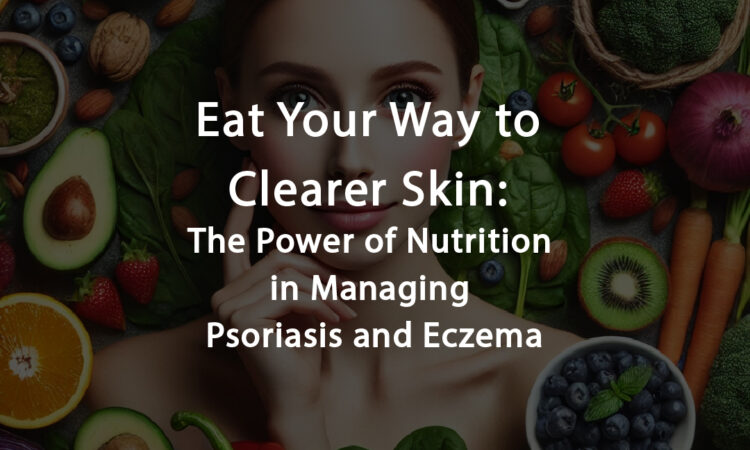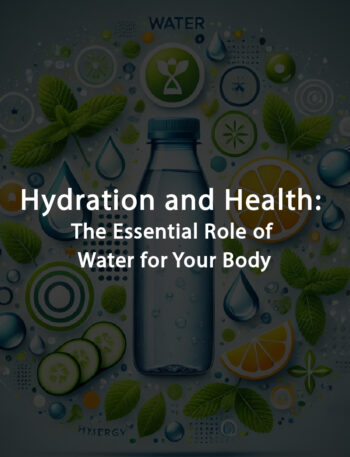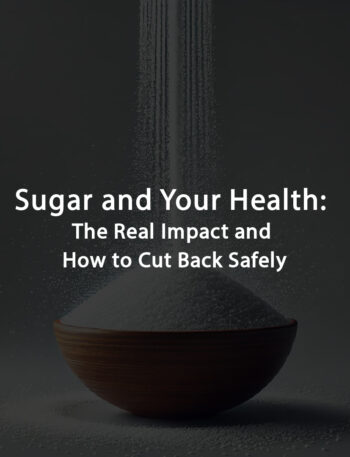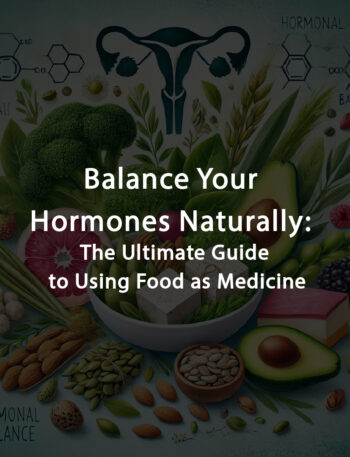Understanding Psoriasis and Eczema: How Diet Can Help Manage and Cure These Skin Conditions
Psoriasis and eczema are two of the most common chronic skin conditions that affect millions of people worldwide. Both conditions cause discomfort, itching, and inflammation, significantly impacting the quality of life of those who suffer from them. While there is no definitive cure for psoriasis or eczema, managing these conditions through diet and lifestyle changes can lead to significant improvement in symptoms and overall skin health.
In this comprehensive article, we will delve into what psoriasis and eczema are, explore their causes and symptoms, and most importantly, focus on how diet plays a crucial role in managing and potentially curing these skin conditions. With 90% of the weightage on diet and food-related strategies, this article aims to provide you with a detailed guide on how to use nutrition to support your skin health and alleviate the symptoms of psoriasis and eczema.
What Are Psoriasis and Eczema?
Psoriasis
Psoriasis is a chronic autoimmune condition that causes the rapid buildup of skin cells, leading to scaling on the skin’s surface. This buildup of cells results in scaling and red patches that can be itchy and sometimes painful. Psoriasis is believed to be related to a problem with the immune system, where the body’s defense mechanism mistakenly attacks healthy skin cells.
There are several types of psoriasis, including:
- Plaque Psoriasis: The most common form, characterized by red patches covered with silvery-white scales.
- Guttate Psoriasis: Small, drop-shaped spots on the skin, often triggered by a bacterial infection.
- Inverse Psoriasis: Occurs in skin folds, such as under the breasts or in the groin area, and appears as red, shiny lesions.
- Pustular Psoriasis: Characterized by white pustules (blisters of noninfectious pus) surrounded by red skin.
- Erythrodermic Psoriasis: A severe and rare form of psoriasis that can cover large areas of the body with a red, peeling rash.
Eczema (Atopic Dermatitis)
Eczema, also known as atopic dermatitis, is a chronic inflammatory skin condition that causes itchy, red, and dry skin. It is a common condition in children but can occur at any age. Eczema is thought to be caused by a combination of genetic and environmental factors that lead to an overactive immune response, resulting in inflammation of the skin.
Common triggers for eczema include:
- Allergens: Such as pollen, pet dander, or dust mites.
- Irritants: Such as soaps, detergents, and certain fabrics.
- Stress: Emotional stress can exacerbate eczema symptoms.
- Climate: Cold, dry weather or excessive heat and humidity can trigger flare-ups.
- Dietary Factors: Certain foods can trigger eczema flare-ups in some individuals.
The Role of Diet in Managing Psoriasis and Eczema
While the exact cause of psoriasis and eczema remains unclear, it is widely accepted that inflammation plays a key role in both conditions. Diet can have a significant impact on inflammation in the body, and certain foods can either exacerbate or alleviate symptoms. By adopting an anti-inflammatory diet, you can help manage and potentially reduce the symptoms of psoriasis and eczema.
The Anti-Inflammatory Diet
An anti-inflammatory diet focuses on consuming foods that help reduce inflammation in the body and avoiding foods that may trigger or worsen inflammation. This type of diet is beneficial not only for managing skin conditions like psoriasis and eczema but also for overall health and well-being.
Key components of an anti-inflammatory diet include:
- Fruits and Vegetables: Rich in antioxidants, vitamins, and minerals, fruits and vegetables help combat oxidative stress and inflammation. Aim to include a variety of colorful fruits and vegetables in your diet, such as berries, leafy greens, bell peppers, and carrots.
- Healthy Fats: Omega-3 fatty acids, found in fatty fish, flaxseeds, chia seeds, and walnuts, are known for their anti-inflammatory properties. Incorporate these sources of healthy fats into your diet to help reduce inflammation.
- Whole Grains: Whole grains such as brown rice, quinoa, and oats are rich in fiber and nutrients that support gut health and reduce inflammation.
- Lean Proteins: Opt for lean protein sources such as poultry, tofu, and legumes, which provide essential amino acids without contributing to inflammation.
- Herbs and Spices: Certain herbs and spices, such as turmeric, ginger, and cinnamon, have powerful anti-inflammatory effects. Use them generously in your cooking to enhance flavor and reduce inflammation.
- Probiotic-Rich Foods: Probiotics support a healthy gut microbiome, which is closely linked to skin health. Include probiotic-rich foods like yogurt, kefir, sauerkraut, and kimchi in your diet to promote a balanced gut and reduce inflammation.
- Water: Staying hydrated is essential for overall health and helps maintain healthy skin. Drink plenty of water throughout the day to keep your skin hydrated and support detoxification.
Foods to Avoid
Just as certain foods can help reduce inflammation, others can trigger or worsen it. To manage psoriasis and eczema, it is important to avoid or limit the following:
- Processed Foods: Processed foods often contain unhealthy fats, refined sugars, and artificial additives that can contribute to inflammation. Avoid packaged snacks, sugary drinks, and fast food.
- Refined Sugars and Carbohydrates: Foods high in refined sugars and carbohydrates can spike blood sugar levels and increase inflammation. Limit your intake of sugary snacks, white bread, and pasta.
- Dairy Products: Dairy is a common trigger for eczema in some individuals, as it can cause inflammation and worsen symptoms. Consider eliminating or reducing dairy products from your diet to see if your symptoms improve.
- Red Meat and Saturated Fats: Red meat and foods high in saturated fats, such as butter and fried foods, can promote inflammation. Opt for lean protein sources and healthy fats instead.
- Gluten: Some individuals with psoriasis and eczema may have a sensitivity to gluten, a protein found in wheat, barley, and rye. Consider trying a gluten-free diet to see if it helps reduce your symptoms.
- Alcohol: Alcohol can dehydrate the body and exacerbate inflammation. Limit your alcohol consumption, especially during flare-ups.
- Nightshade Vegetables: Some people with psoriasis may find that nightshade vegetables, such as tomatoes, potatoes, and eggplants, trigger their symptoms. If you suspect nightshades are a trigger, try eliminating them from your diet.
Specific Diets for Psoriasis and Eczema
In addition to following an anti-inflammatory diet, there are specific dietary approaches that may be beneficial for managing psoriasis and eczema. These diets focus on eliminating potential triggers and incorporating nutrient-rich foods that support skin health.
The Mediterranean Diet
The Mediterranean diet is often recommended for its anti-inflammatory properties and overall health benefits. This diet emphasizes whole foods, healthy fats, and plenty of fruits and vegetables, making it an excellent choice for managing psoriasis and eczema.
Key components of the Mediterranean diet include:
- Olive Oil: A rich source of monounsaturated fats and antioxidants, olive oil is a staple in the Mediterranean diet. It helps reduce inflammation and supports skin health.
- Fish and Seafood: Fatty fish such as salmon, mackerel, and sardines are high in omega-3 fatty acids, which have anti-inflammatory effects. Aim to include fish in your diet at least twice a week.
- Fruits and Vegetables: The Mediterranean diet encourages the consumption of a wide variety of fruits and vegetables, which are rich in vitamins, minerals, and antioxidants that promote skin health.
- Whole Grains: Whole grains like brown rice, quinoa, and whole-wheat bread provide fiber and nutrients that support gut health and reduce inflammation.
- Legumes: Beans, lentils, and chickpeas are excellent plant-based protein sources that are low in fat and high in fiber.
- Nuts and Seeds: Almonds, walnuts, flaxseeds, and chia seeds are rich in healthy fats and provide a good source of antioxidants.
- Red Wine (in moderation): Red wine contains resveratrol, an antioxidant that may have anti-inflammatory properties. However, it should be consumed in moderation.
The Autoimmune Protocol (AIP) Diet
The Autoimmune Protocol (AIP) diet is a more restrictive dietary approach designed to help individuals with autoimmune conditions, including psoriasis. The AIP diet focuses on eliminating foods that may trigger inflammation and reintroducing them gradually to identify potential triggers.
Key components of the AIP diet include:
- Elimination of Inflammatory Foods: The AIP diet eliminates grains, legumes, dairy, refined sugars, processed foods, and nightshade vegetables, as these are believed to trigger inflammation in some individuals.
- Focus on Nutrient-Dense Foods: The AIP diet encourages the consumption of nutrient-dense foods such as leafy greens, cruciferous vegetables, bone broth, organ meats, and fermented foods.
- Reintroduction Phase: After following the elimination phase for a period of time, foods are gradually reintroduced one at a time to identify potential triggers.
- Emphasis on Gut Health: The AIP diet places a strong emphasis on supporting gut health through the consumption of probiotics, prebiotics, and anti-inflammatory foods.
The Gluten-Free Diet
For individuals with psoriasis and eczema who have a sensitivity to gluten, adopting a gluten-free diet may lead to an improvement in symptoms. A gluten-free diet eliminates all sources of gluten, a protein found in wheat, barley, and rye.
Key components of a gluten-free diet include:
- Gluten-Free Grains: Instead of wheat, barley, and rye, opt for gluten-free grains such as quinoa, rice, buckwheat, and millet.
- Whole Foods: Focus on whole, unprocessed foods such as fruits, vegetables, lean proteins, and healthy fats, which are naturally gluten-free.
- Label Reading: Always read food labels to ensure that products are gluten-free. Gluten can be hidden in many processed foods, sauces, and condiments.
- Naturally Gluten-Free Foods: Fresh fruits, vegetables, meats, fish, eggs, nuts, seeds, and dairy (if tolerated) are naturally gluten-free and can be safely included in the diet.
Supplements and Natural Remedies for Psoriasis and Eczema
In addition to a healthy diet, certain supplements and natural remedies may help manage psoriasis and eczema symptoms. Always consult with a healthcare provider before starting any new supplements.
Omega-3 Fatty Acids
Omega-3 fatty acids, found in fish oil supplements, have been shown to reduce inflammation and improve symptoms of psoriasis and eczema. These fatty acids help maintain the skin’s barrier function and reduce dryness and itching.
Vitamin D
Vitamin D is essential for immune function and skin health. Individuals with psoriasis and eczema often have lower levels of vitamin D, and supplementation may help reduce symptoms. Sun exposure is also a natural way to boost vitamin D levels.
Probiotics
Probiotics support a healthy gut microbiome, which is closely linked to skin health. Taking a daily probiotic supplement or consuming probiotic-rich foods like yogurt, kefir, and sauerkraut may help reduce inflammation and improve skin conditions.
Zinc
Zinc is an essential mineral that plays a key role in skin health and immune function. Zinc supplementation has been shown to improve symptoms of psoriasis and eczema, particularly in individuals with a zinc deficiency.
Turmeric
Turmeric, a spice commonly used in cooking, contains curcumin, a compound with powerful anti-inflammatory and antioxidant properties. Turmeric supplements or incorporating turmeric into your diet may help reduce inflammation and improve skin health.
Lifestyle Tips for Managing Psoriasis and Eczema
In addition to diet, certain lifestyle changes can help manage and improve psoriasis and eczema symptoms:
- Manage Stress: Stress is a common trigger for both psoriasis and eczema. Practice stress-reducing techniques such as yoga, meditation, deep breathing, and regular physical activity.
- Moisturize Regularly: Keeping the skin hydrated is essential for managing eczema and psoriasis. Use a gentle, fragrance-free moisturizer several times a day to prevent dryness and irritation.
- Avoid Harsh Soaps and Detergents: Use mild, fragrance-free soaps and laundry detergents to reduce irritation. Avoid hot showers, which can dry out the skin, and opt for lukewarm water instead.
- Wear Loose Clothing: Tight clothing can irritate the skin and worsen symptoms. Opt for loose, breathable fabrics like cotton.
- Stay Hydrated: Drink plenty of water throughout the day to keep your skin hydrated and support overall health.
- Get Enough Sleep: Quality sleep is essential for skin health and overall well-being. Aim for 7-9 hours of sleep each night.
- Limit Sun Exposure: While moderate sun exposure can be beneficial for psoriasis, too much sun can lead to sunburn and worsen symptoms. Always use sunscreen and limit your time in direct sunlight.
- Keep a Food Diary: Track your diet and symptoms to identify potential food triggers. This can help you make informed dietary choices and avoid flare-ups.
Psoriasis and eczema are chronic skin conditions that can significantly impact quality of life. While there is no definitive cure, managing these conditions through diet and lifestyle changes can lead to significant improvement in symptoms and overall skin health. By adopting an anti-inflammatory diet rich in fruits, vegetables, healthy fats, and lean proteins, and avoiding inflammatory foods like processed foods, refined sugars, and dairy, you can help reduce inflammation and support your skin’s healing process.
In addition to diet, supplements like omega-3 fatty acids, vitamin D, probiotics, and zinc, as well as natural remedies like turmeric, can further support skin health. Incorporating these dietary and lifestyle strategies can help you manage psoriasis and eczema more effectively and improve your overall well-being.
Remember, every individual is different, and what works for one person may not work for another. It’s important to listen to your body, consult with healthcare professionals, and make gradual changes to your diet and lifestyle to find what works best for you.
By focusing on nutrition and making informed dietary choices, you can take control of your skin health and live a happier, healthier life with psoriasis or eczema.






